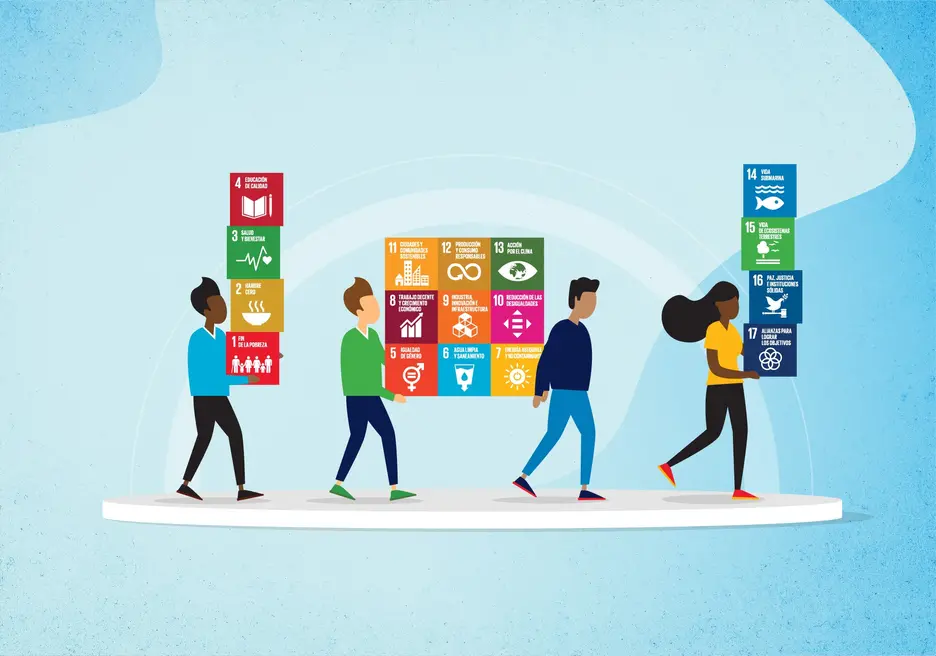How to Make the Sustainable Development Goals More Meaningful for the Private Sector

One of the most cited figures during Sustainability Week 2019 was $2.5 trillion, in reference to the estimated annual financing gap that needs to be filled to meet the Sustainable Development Goals (SDGs) by 2030 in developing countries alone.
While this figure gives us a sense of the sheer magnitude of the challenge at hand, it is helpful to bring this number down to earth to make the SDGs more tangible for private sector actors. What do the SDGs mean for them and how can they contribute towards these targets in a meaningful way?
To do so, we’d like to highlight three key takeaways that echoed across conversations around the SDGs throughout our recent Sustainability Week event in Panama City.
- A strong business case counts.
To start, the business case needs to be strong for companies to truly internalize sustainability and integrate an SDG focus into core business operations.
As panelists Luis Carlos Rodriguez and Michelle Espinach from Banco Promerica Costa Rica explained, this has meant “walking the talk” by not only incorporating practices such as energy efficiency throughout corporate operations, but also integrating sustainability and an SDG lens into their core business of lending to small and medium enterprises (SMEs). In turn, the bank aims to measure the impact of its SME lending in line with the SDGs – mainly related to decent work, gender equality, climate action, and access to affordable and clean energy – and build a sustainable portfolio that will generate greater business value.
Similarly, for companies such as Swiss Re that are in the business of risk management, the link between the SDGs and their core business is clear, especially when it comes to climate change. For example, panelist Rubem Hofliger shared how under Swiss Re’s coal policy, the company will not provide re/insurance to businesses with more than 30 percent thermal coal exposure. Instead, they are focusing on new opportunities in renewable energy and climate change mitigation and adaptation.
Another key element of the business case for sustainability for Banco Promerica -- and for companies across sectors -- is the ability to attract and retain millennial employees who increasingly expect a higher sense of purpose from their employers. Likewise, Andrea Pradilla from the Global Reporting Initiative emphasized other drivers for SDG engagement including technologies that are transforming business models, the need for companies to respond to public policies and regulations that foster sustainability, and mounting market demand for sustainable investments.
- Deeper SDG engagement remains a challenge.
A second key takeaway is that while companies in Latin America and the Caribbean are taking stock and recognizing the strategic opportunity of the SDGs, deeper integration remains a challenge. During an SDG-focused workshop, participants were asked about the current level of engagement of their organization with these global goals. While 98 percent of the 46 respondents said they were engaging with the SDGs, nearly half said that this engagement was still at a superficial level. This could mean a baseline awareness of the SDGs within the company or loose alignment of the business with different goals.
Interestingly, when asked about their main drivers for engaging with the SDGs, 46 percent cited strategic, operational reasons related to improving long-run operational efficiency and mitigating supply chain risk.
This snapshot from our workshop also reflects broader trends. For example, a 2018 World Business Council for Sustainable Development global survey with 250 companies found that while 78 percent have undertaken efforts to identify priority SDGs, only 44 percent have gone deeper by analyzing the relationship between the SDGs and their corporate strategy, and 40 percent have actually integrated the SDGs into a strategy.
- We need to manage what we measure.
Finally, in addition to reporting and impact measurement, it’s the management aspect that counts. For companies, this means understanding their impact opportunities (both positive and negative) and prioritizing SDG targets accordingly, demonstrating impact achieved through sound measurement, and using impact information to inform and improve business strategy and decision-making. Completing this circle is a challenge for many companies, as reflected in our SDG workshop. When asked about the main difficulty participants face in implementing the SDGs, the top reason was the lack of internal expertise on how to select an appropriate measurement framework and track relevant indicators.
Ultimately, while the mounting interest in the SDGs within the region’s private sector is promising, the transition from interest to meaningful action needs to accelerate. And fast. That is why helping our clients understand the SDG business case for their company or industry, integrate the SDGs into their strategic and operational priorities, and measure their contributions to these goals are top priorities for IDB Invest.■
LIKE WHAT YOU JUST READ?
Subscribe to our mailing list to stay informed on the latest IDB Invest news, blog posts, upcoming events, and to learn more about specific areas of interest.
Subscribe



